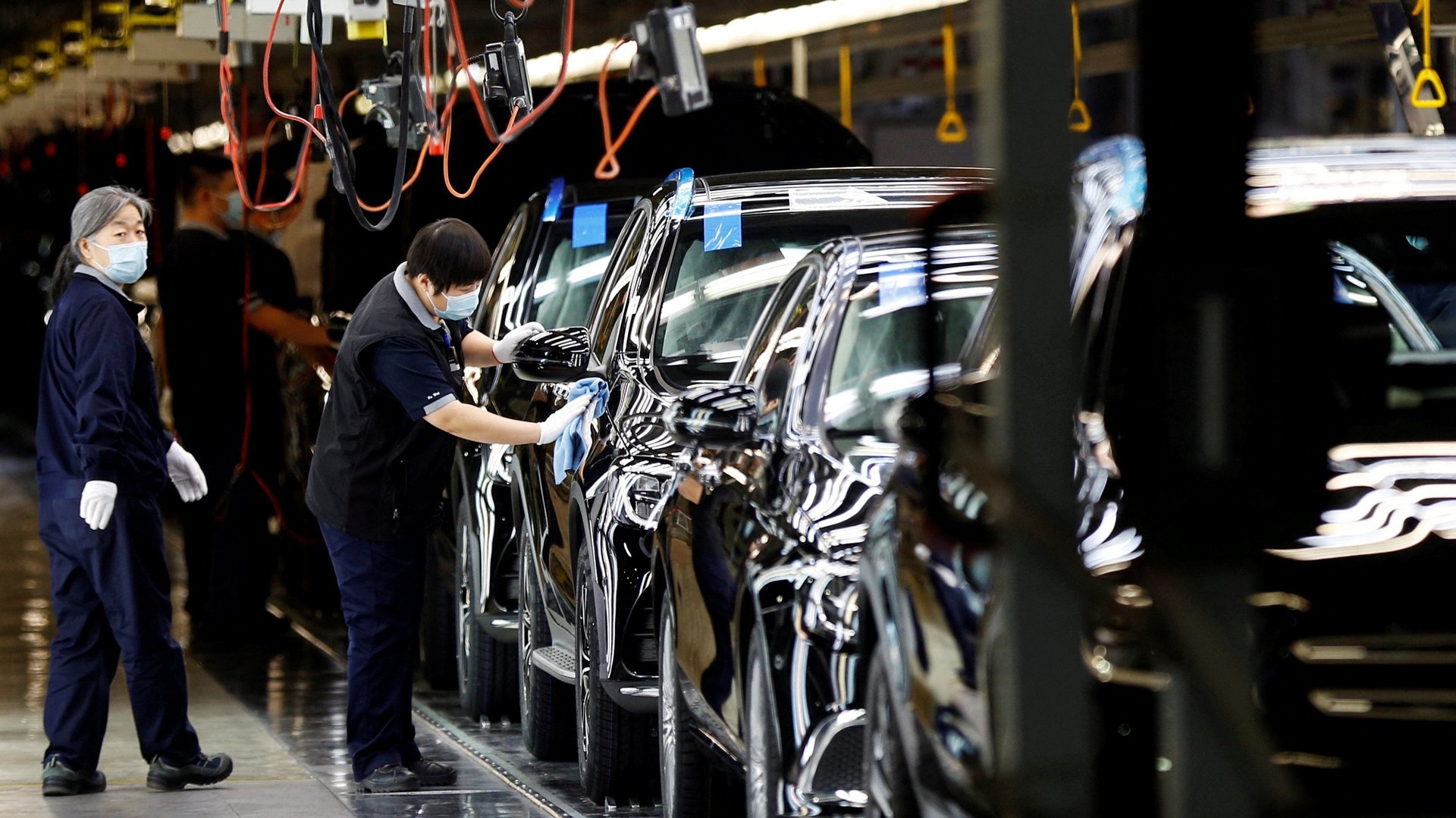In an EV world, Europe’s automakers are even more reliant on China
Three major German carmakers have separately made announcements this month that underscore just how important China is to their electric vehicle ambitions.


Three major German carmakers have separately made announcements this month that underscore just how important China is to their electric vehicle ambitions.
Mercedes-Benz has just kicked off production of its all-electric EQE model at its factory in Beijing. Soon after, BMW officially opened a new factory in the northeastern city of Shenyang. Days after that, Audi broke ground on a new manufacturing plant in the northeastern city of Changchun.
The companies’ back-to-back announcements caught the attention of Chinese media. “The three major German luxury car makers…simultaneously held a new factory production or groundbreaking ceremony in China, something that has not happened in the past decade or so,” noted the Economic Observer (link in Chinese), a business newspaper.
Chinese state media outlet Xinhua calls European carmakers’ continued investments in China a “show [of] confidence” in the country’s pandemic control and economic development.
But more than anything, the recent developments show the degree to which the European auto companies see China as indispensable to their plans to be major EV players.
Mercedes-Benz, for instance, plans to be all-electric by 2030. Audi will end production of internal combustion engine cars by 2026. And BMW expects sales to be 50% EVs by the end of this decade.
To achieve those goals, they will need a lot of minerals, capacity to process those minerals, and batteries. Setting up production in China, which dominates the EV supply chain, places the carmakers in proximity to all those inputs.
Of course, it also means significant dependence on a country with which Europe’s relations are increasingly strained.
Volkswagen, Audi’s parent company, illustrates the risks of relying on authoritarian states. The group relies on China for at least half its annual net profits, according to the Financial Times. And it has consistently defended its operations in Xinjiang, where China is accused of carrying out human rights abuses on a massive scale.
That’s now an increasingly difficult position for Volkswagen. In May, the German government denied the group investment guarantees for projects in China over human rights concerns. Earlier this month, Germany’s largest trade union questioned the company’s continued presence in Xinjiang. A major shareholder has also called on the firm to scrutinize the human rights abuse allegations.
Despite European automakers’ recent announcements, the tide may well be slowly turning against businesses’ heavy dependence on China.
“It’s a bellwether for a bigger change that’s coming,” says Gregor Sebastian, an analyst at the German think tank Mercator Institute for China Studies (MERICS), referring to the rejection of investment guarantees for Volkswagen. “This automatism that what is good for [German businesses] abroad is good for Germany at home—I think that’s gone.”
Meanwhile, disruptions from China’s zero-covid policies are forcing firms to reconsider their operations there. A recent survey by the European Chamber of Commerce showed that nearly one in four European firms are considering shifting out of China (pdf, p.12).
But for now, money talks. And for Germany’s carmaking trio, there’s a lot of money still to be made in China.